

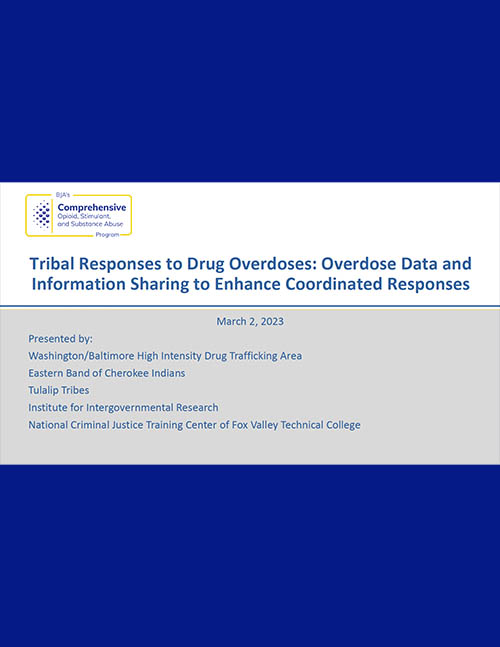
PPT slides for Tribal Responses to Drug Overdoses: Overdose Data and Information Sharing to Enhance Coordinated Responses webinar - 508C
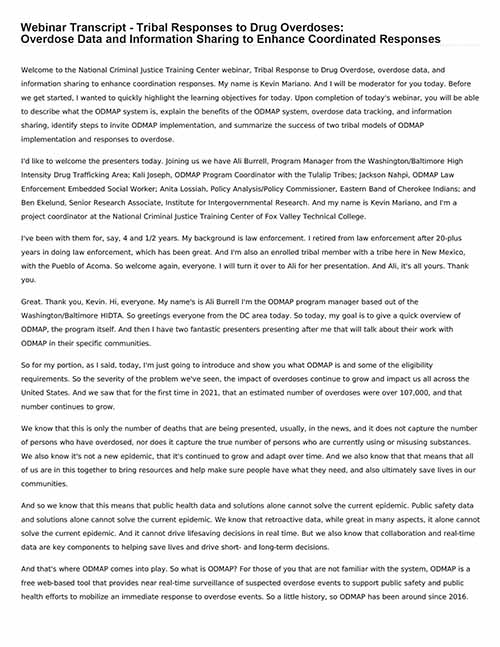
Transcript for Tribal Responses to Drug Overdoses: Overdose Data and Information Sharing to Enhance Coordinated Responses webinar - 508C

University of New Hampshire; Crimes Against Children Research Center - Increasing Youth Safety and Responsible Behavior Online: Putting in Place Programs that Work.

What to know before bringing a Smart Device home

What to know before bringing a Smart Device home - with Contact Us form
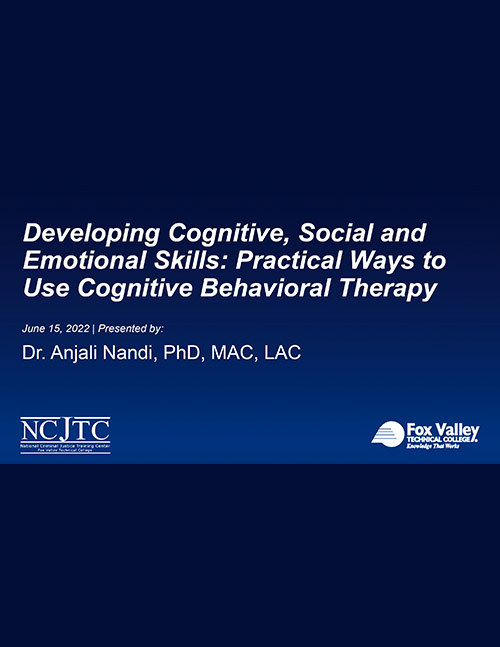
PPT Slides for Developing Cognitive, Social and Emotional Skills: Practical Ways to Use Cognitive Behavioral Therapy - 508C
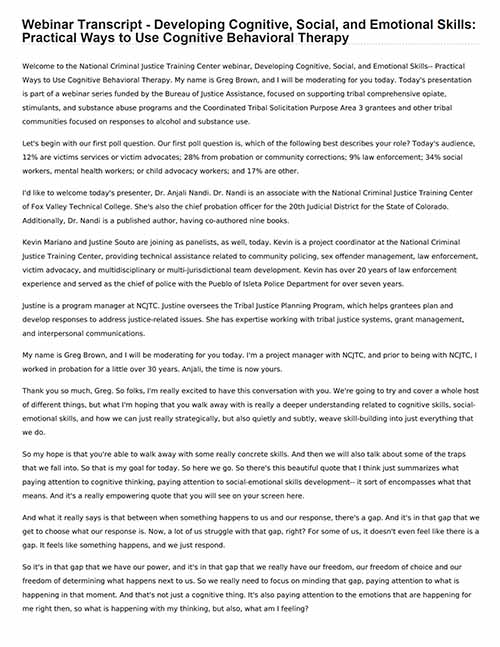
Webinar Transcript for Developing Cognitive, Social and Emotional Skills: Practical Ways to Use Cognitive Behavioral Therapy - 508C
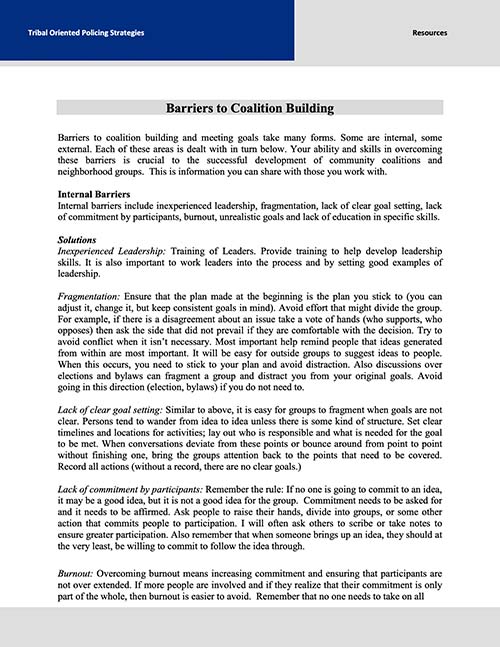
This document describes barriers to coalition building and recommended solutions to overcome the barriers.
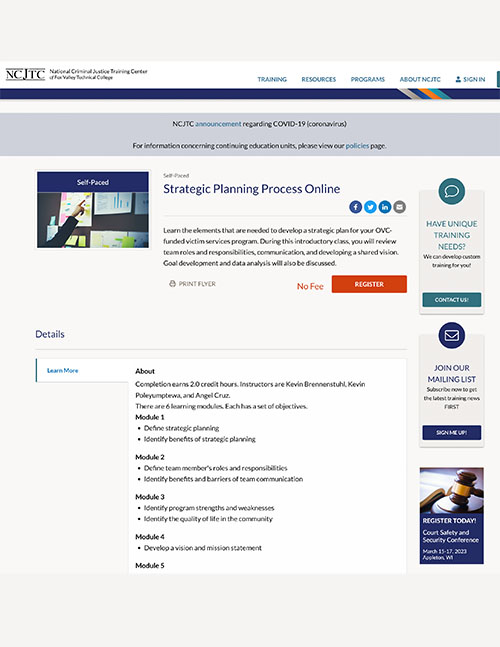
Self-Paced course for Strategic Planning Process Online
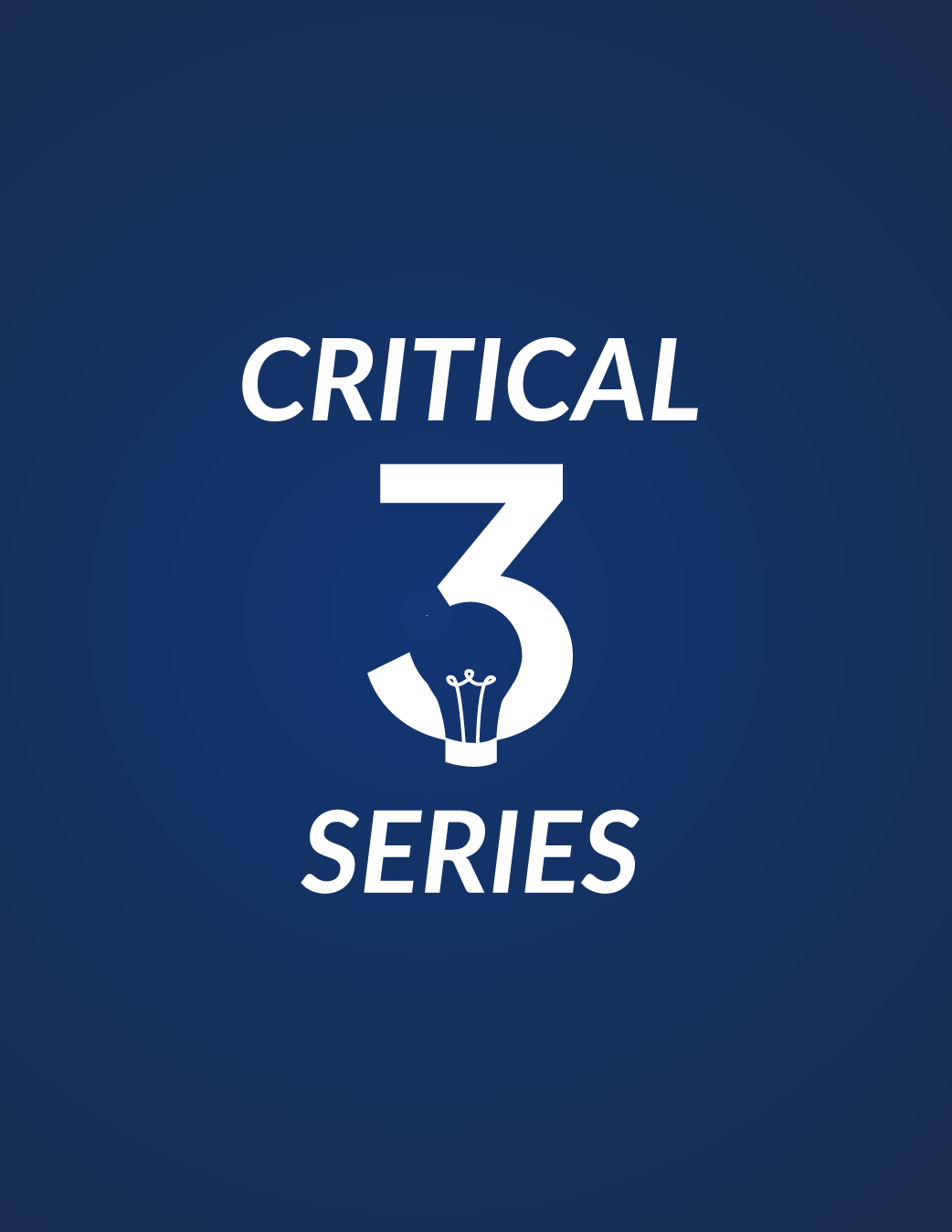
Are you feeling exhausted and burned out? Do you want your energy and passion back? Mark Yarbrough shares three things to consider when trying to avoid and/or overcome burnout.
